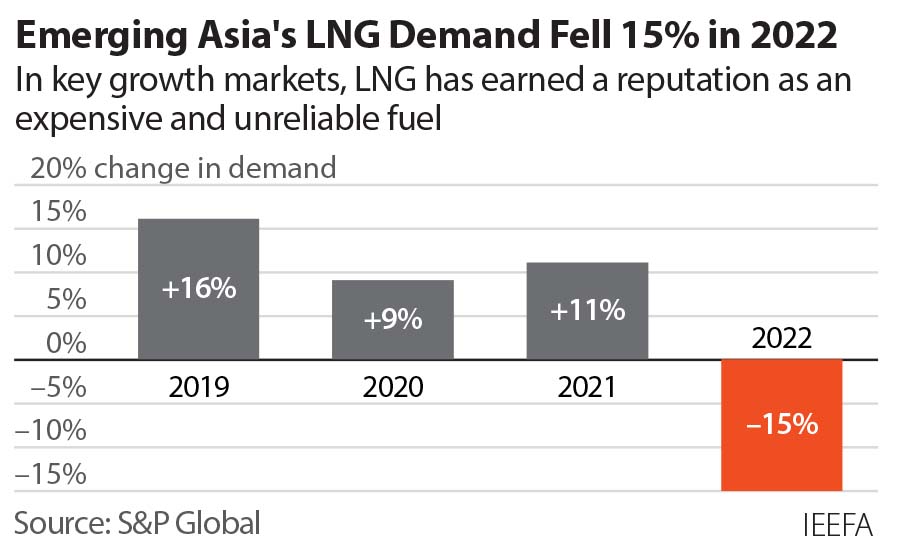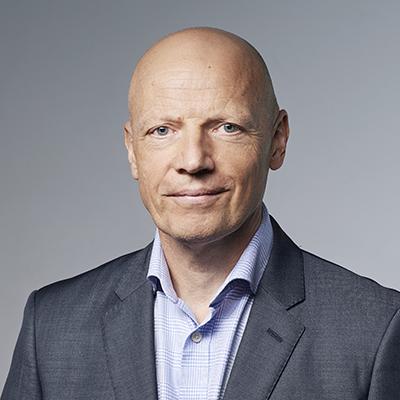IEEFA: Turmoil in global LNG markets is curbing long-term demand growth

Key Takeaways:
Russia’s invasion of Ukraine upended global LNG markets last year—spurring Europe to buy record amounts of LNG, and pushing prices to their highest level ever
In Asia, LNG has earned a reputation as an expensive and unreliable fuel source, clouding future demand
The EU is taking aggressive steps to trim gas consumption, which could render new LNG import capacity unneeded
Although LNG markets may remain tight for several years, the global LNG market will see a wave of new projects coming online in 2025-27—potentially leading to a supply-demand mismatch and financial risks for LNG suppliers and traders
Global liquefied natural gas (LNG) supplies are likely to remain tight through 2025, curbing demand growth in key Asian import markets. European LNG demand may remain strong in the short term, but will decline by 2030 as decarbonization and energy security policies take effect. Meanwhile, a wave of new LNG export capacity coming online later in the decade could create a mismatch between supply and demand, elevating financial risks for LNG suppliers and traders.
The findings come from the new Global LNG Outlook from the Institute for Energy Economics and Financial Analysis (IEEFA), which analyzes LNG supply and demand developments in Europe, Asia, Australia, the U.S., and Qatar. The report finds that last year’s LNG market turmoil—characterized by record high prices and unreliable supplies—has undermined long-term LNG demand growth in both Europe and Asia:
- In 2022, European countries boosted LNG imports by 60% to make up for declining pipeline gas shipments from Russia. Europe’s red-hot LNG demand drove global spot prices to all-time highs, forcing price-sensitive Asian buyers to slash LNG purchases and curtail plans for new LNG imports.
- China cut 2022 LNG purchases by 20%, due to a combination of high prices, COVID-19 shutdowns, and slower economic growth. High LNG prices have pushed the country’s gas buyers to rely more heavily on domestic production and pipeline imports.
- India, Bangladesh, and Pakistan slashed LNG demand by a combined 16% last year. Concerns over fuel security, unaffordability, rapidly depleting foreign currency reserves, and demand destruction could limit the region’s medium-term LNG imports.
- Southeast Asian buyers face challenges from high prices and infrastructure constraints. Long-term LNG contracts with deliveries starting before 2026 are reportedly sold out globally, forcing Southeast Asian countries into expensive spot markets.
- In Japan and South Korea, high LNG prices accelerated a resurgence of nuclear power generation that could slash power sector gas demand. In Taiwan, persistent terminal delays and state-owned utility financial difficulties could constrain rapid increases in LNG imports.
- Europe’s LNG demand could remain strong in 2023 but is poised to fall, as EU climate and energy security policies curtail gas demand by at least 40% through 2030. Although new LNG terminals could boost the continent’s import capacity by one-third by the end of 2024, Europe’s ambitious energy transition targets mean that much of the new capacity could remain unused.
The Russia-Ukraine crisis has exposed long-term financial risks throughout the LNG value chain. In 2022, high spot prices and supply disruptions earned LNG a reputation as an expensive and unreliable fuel source, undermining the prospects for demand growth in key markets. When large volumes of new supply enter the market starting in mid-2025, it could trigger a supply glut, heightening the financial and pricing risks for LNG exporters and traders.
Read the Report: Global LNG Outlook 2023-27
Report contact:
|
|
|
|
|
|
|
|
|
|
|
|
|
|
|
|
|
|
|
|
|
|
|
|
|
|
|
|
|
|
|
|
|
|
|
|
|
|
|
|
|
|
|
|
Media contact:
|
|
|
|
|
|
|
|
|
|
|
|
|
|
|
|
|
|
|
|
|
|
|
|
About IEEFA:
The Institute for Energy Economics and Financial Analysis (IEEFA) examines issues related to energy markets, trends and policies. The Institute’s mission is to accelerate the transition to a diverse, sustainable and profitable energy economy. (www.ieefa.org)






















